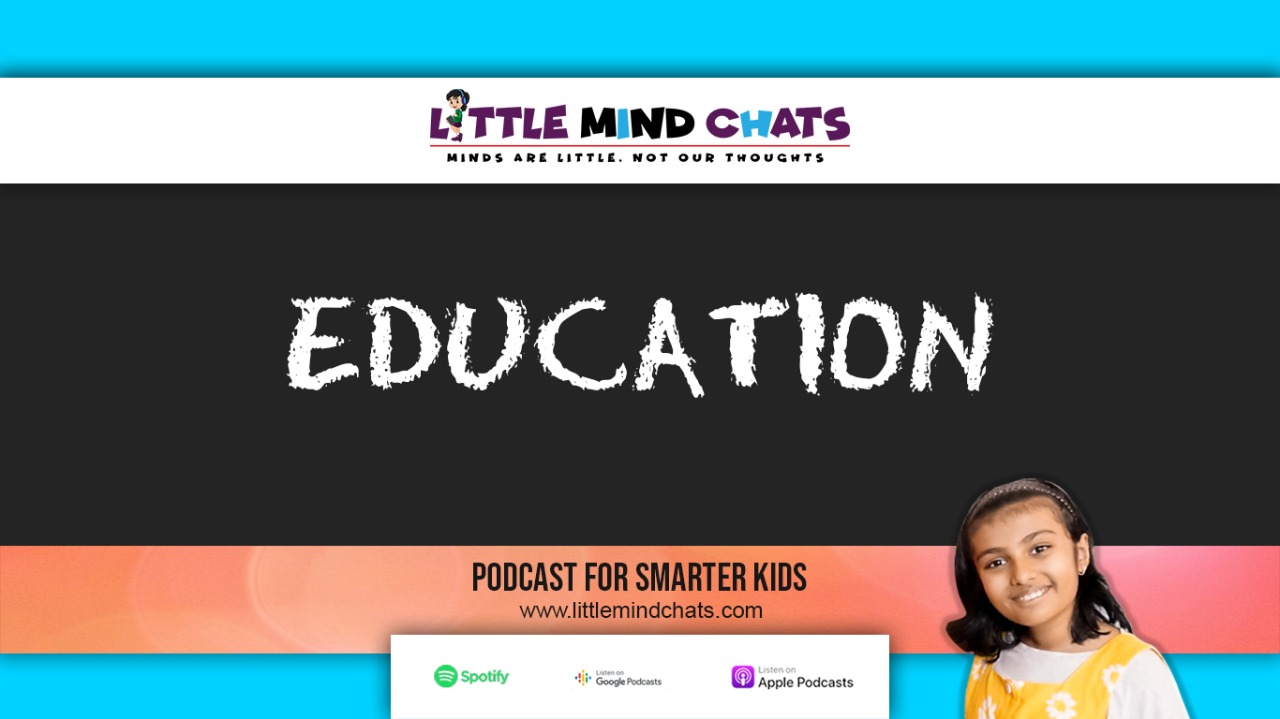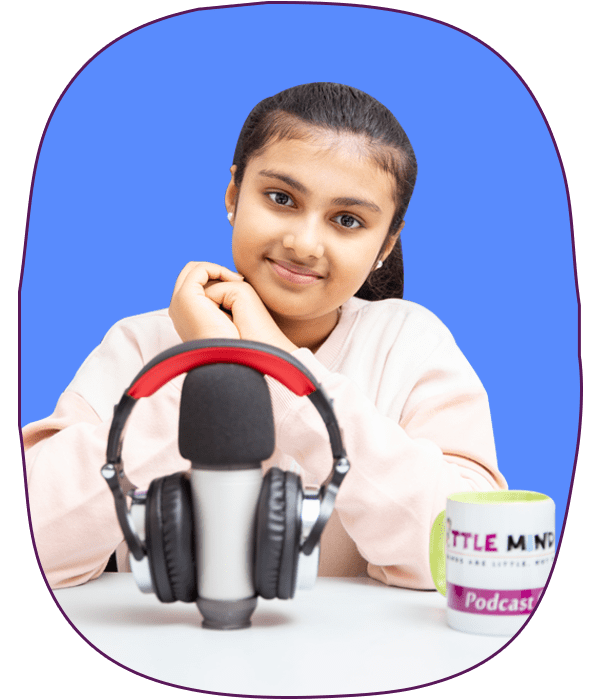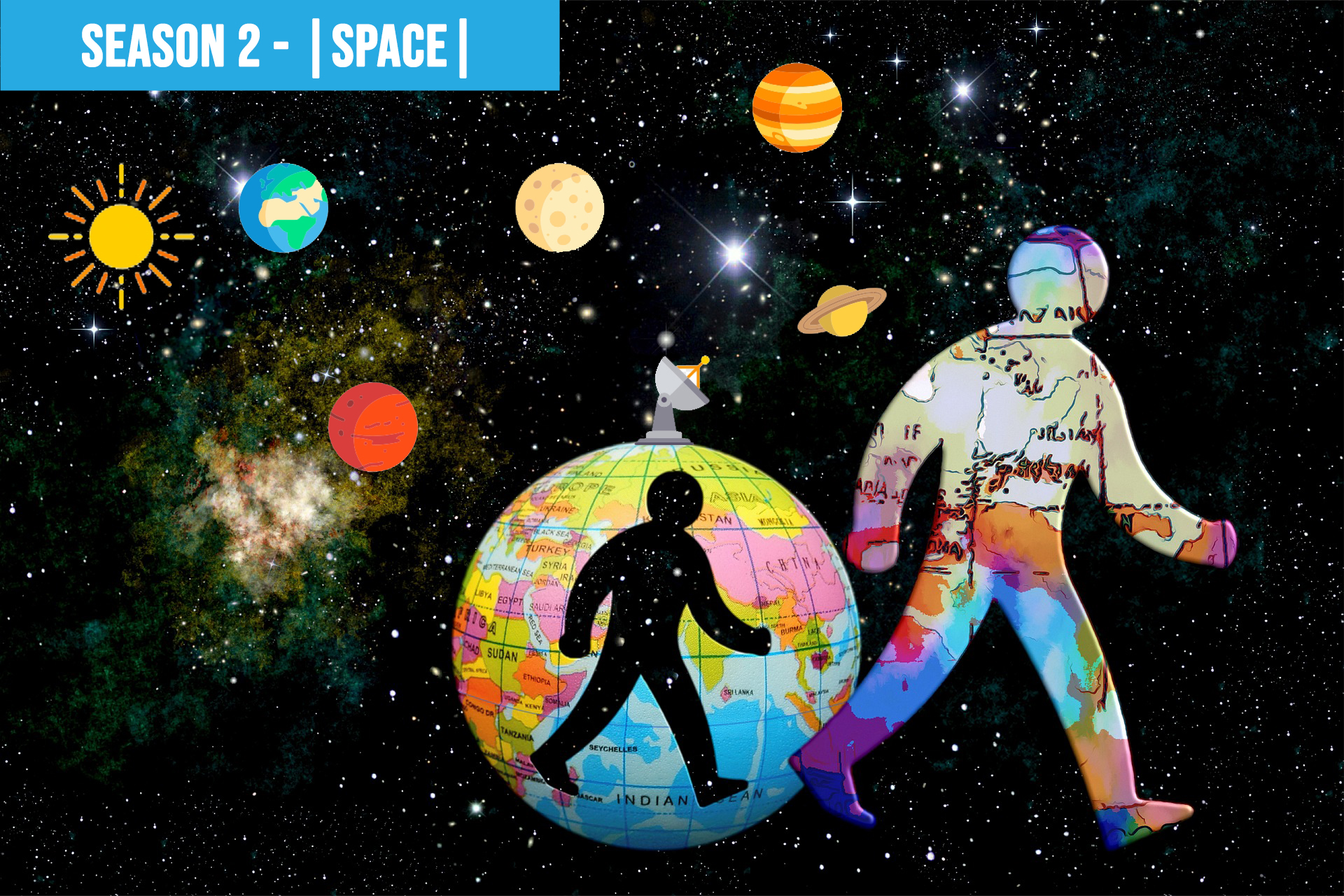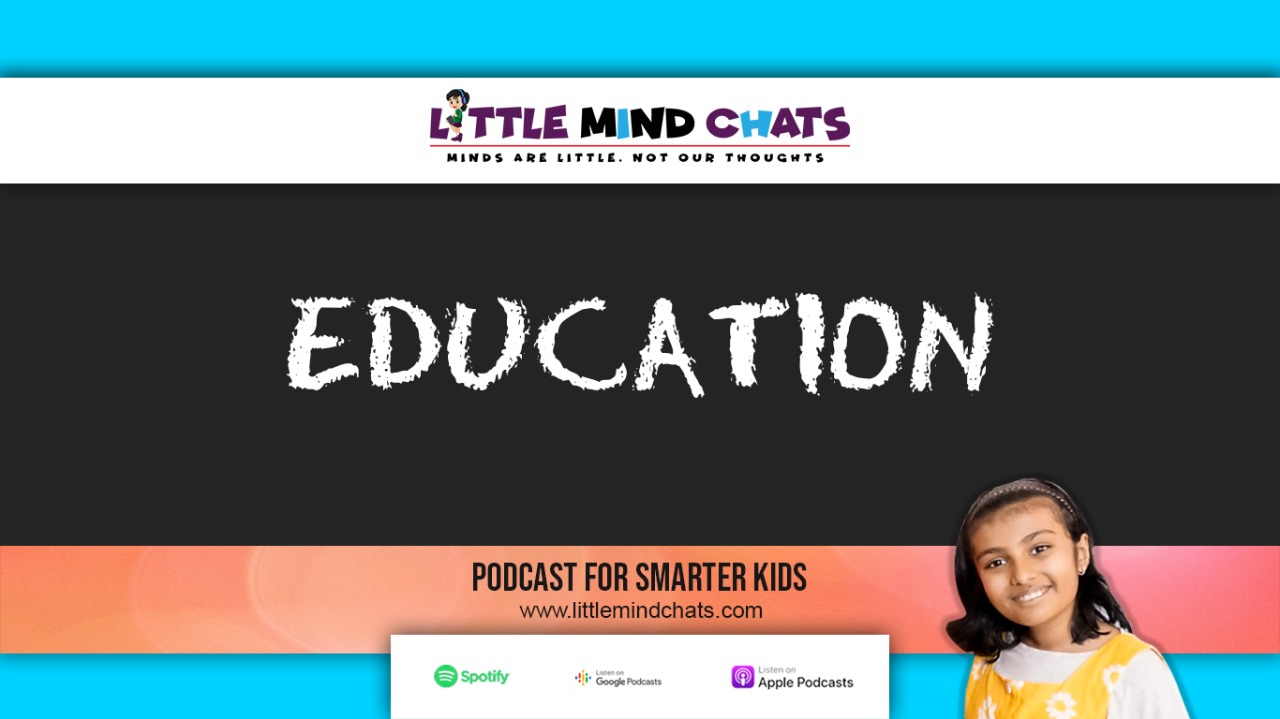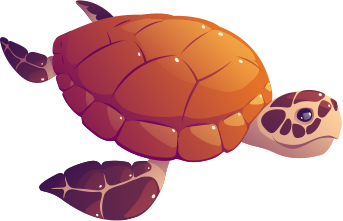034: Importance of Education
Transcripts
SEASON-3
EPISODE-034 IMPORTANCE OF EDUCATION
[0.01] {Background Music}
[0.08] Siyona: Hello everyone, Welcome to the first episode of Season 3 in my podcast Little Mind Chats. Minds are Little, not our thoughts. I’m your host Siyona. I hope you had a happy Halloween and had fun even in corona virus time.
[0.22] For all of you curiously waiting for this month’s competition results, you could hear it to the end, after this conversation with Dr. Uday.
[0.32] I couldn’t have started this season without asking some basic questions about education. Like, why is it important? What if we do not get educated? My head is truly ringing with questions.
[0.47] We went through a very tough search to find the right person to help me understand this. Guess what? I got more than I asked for. Today, we have the privilege of having with us, Dr Uday Balakrishnan.
[1.02] Dr. Uday Balakrishnan, has been a Visiting Fellow at the National Institute of Advanced Study as well as twice at the Central European University Budapest and the Centre of Contemporary Studies –Indian Institute of Science, is a former officer of the Indian Postal Service. As Member of Postal Services Board and Chairman Investment Board he was responsible for making the Rural Postal Life Insurance Scheme the world’s largest in coverage, overtaking even the Life Insurance Corporation of India. Wow, that’s pretty amazing!
[1.40] Dr. Balakrishnan was in charge of the National Child Labour Elimination Programme and developed educational models to bring children out of work and stream them to education through special schools that were set up across India. These schools even provided midday meals to the children and stipends to their parents. India’s child labour elimination effort during his time was the largest such initiative in the world and the most innovative. Wow! That sure is making a lot of difference!
[2.16] Dr. Balakrishnan who has lectured and taught in institutions in India and overseas writes for leading newspapers and journals on various issues including school education, which were published in Hindu and its sister newspaper, Business Line.
[2.34] Siyona: Hello, Dr. Uday. Great to have you here. Welcome to my show.
[2.39] Dr. Uday: Hello Siyona. Nice to meet you.
[2.42] Siyona: Nice to meet you as well. My first question is, “Why is it important to be educated?”
[2.50] Dr. Uday: It’s a big question and I’ll give a very short answer which I hope your listeners will also pay attention to. Education is important for us to live our life meaningfully. In the sense, we have to live our life in a good way, in a meaningful way. To earn a living, to enjoy our life better, we need an education. Without education, we can no chance in this world today, to learn and relearn. Education is not just going to school and picking up maths and languages and science and other things, but it’s also a sort of a necessity for us to interact with each other, with understanding. So, that is one reason why need to be educated.
[3.41] Dr. Uday: The other reason why we need to be educated is, as time goes, you have to learn new things. And how do you learn new things if you are not educated? If you cannot read, if you cannot write, if you do not know how to do mathematics, how will you be able to go through life like that? If you are not educated, at least to a level where you can read a book, you can understand mathematics, you can read a road sign. What will happen? You will be asking people; you will be lost in life. So, unfortunately many people don’t have an education and they are stuck with that. So, if you go to a bus stand and in a rural area, you are quite likely to come across a person who would come and ask you “where is that bus going?”. Everything is written there. The number of the bus, the place it is going to, the place it is coming from. But the person without an education, without learning will not understand that. So, you need to be educated to live your life these days. Otherwise, you will always be asking people for things what should I do, what is that all about. Even if the answer is obviously there in the from of a book or a notice board or an instruction manual you need to be indicated. You can either fiddle around with it and get to know something of it. But if you want to use it very well, you will need to read the manual. You need to know what each of those buttons there are for. So, you do need an education for everything that you need to do in your life. And in fact, what does education do? It helps you prepare, learn and relearn and learn new things. Without education, when things change, when technologies change, for you to adapt to technologies, you need education. Does that satisfy you?
[5.43] Siyona: Well, that does satisfy and that does explain a lot. My next question is, “What happens to children when they do not have access to education?”
[5.58] Dr. Uday: I know that quite because I happened to help children who did not have an education, who could not get education, to get an education. When you don’t have an education, they will grow out to be illiterate, uneducated people. And there will be no chance for them to make a living out of learning a skill or learning something quite well and applying it to practical applications. Today, if you don’t know to read and write, you cannot learn to be a good electrician. You cannot even be a good computer operator. If you send me a message, if I am not able to read it, but you still send the message, we cannot be conversing like this. You need that type of an education to be able to understand the world around you and many children don’t have that chance to be educated because of the circumstances in which they are placed. In India as you know, at least 30% of the children though it is said that almost 100% of the children go to school, the fact is that quite a lot of children don’t know to read and write. They don’t know to do basic sounds without learning to do these things, their life will be very, very poor. In the sense that what can an uneducated man do, he can wash vessels at home, yes. He can sweep your floor, yes. But suppose things change. His life is again miserable. He can be standing outside your gate and he can be your security guard, even they need to be educated. Even they need to read something. But basically, you are reduced to doing very, very basic things with your hand to become a manual worker at best. So, children who are not educated will grow up to become adults who are not educated and their life will be much poorer than it would have been than have they been educated.
[8.09] Siyona: That’s a good point. I don’t want to grow into an uneducated adult and do small jobs for sure.
[8.17] Dr. Uday: Yes. Of course. You are educated. You are able to do this programme because you are educated. Can somebody who does not know to read, write or anything do this programme?
[8.28] Siyona: No. I don’t think so. Now, my next question is, “People say that humanity came all this way because of their intelligence. why education now?”
[8.42] Dr. Uday: At all stages, people have been getting throughout history, from learning how to hunt, from learning how to grow plants, how to make handicraft articles, how to make cloth, how to weave, all those things are also part of education. Do not think that education is only learning to read and write. It is also learning skills from a master. So, humanity has progressed through history only because they had to learn something. So, education in a broad way has been absolutely necessary for human progress. So, it is not only intelligence. Intelligence enables you to understand the world around you and say this, I have to learn this. Otherwise, how mankind has fed itself. How could it have probed itself. How could it have travelled.
[9.33] Siyona: So, would you say farming and something like cooking are the simplest forms of education?
[9.40] Dr. Uday: Both are not simple. Both are not complicated. But, a lot of that comes from instinct, from learning, from observing somebody else do it. So that is a learning process. You understand?
[9.52] Siyona: Yeah
[9.53] Dr. Uday: But your cooking will improve, your ability to grow things will improve. If you knew what are the things that makes a good growth, what are the things that go into making good food, what is the science behind it, what is the technology behind. You need to understand those things. To do better than an uneducated person can. People who do not have an education can do many interesting things. They can make good food; they can definitely be able to grow things. But if they want to grow things fast, better, they need an education. If they want to do, if you are cooking very well, you can cook even better if you are educated. If you are a farmer and growing some plants and if you knew the science of how to grow plants, you will be a better farmer. Even better than however good you might have been, you are not having education.
[10.46] Siyona: Yeah. Well that makes more sense now. But, do we have to go to schools to be educated?
[10.55] Dr. Uday: Yes, you are in some kind of a school, most of the time, even if your mother teaches you at home and you don’t go to school. A formal school where you meet other children. You are still in some type of a school. But ultimately, we have to go to school for many reasons. Your education will be richer and more complete. If you go to school, you will meet friends, you will meet your teacher, you will know to get along with other children, you will know how to get along with other human beings and when you are educated, you will know how to communicate better, so you will get interested in things. So, I think going to school is an important part of your education process. There is no doubt about it. It might be easy to be educated without going to school. But you will never reach anywhere. You need to know how you have progressed in your learning. And that can be done at home but it is easily done at school. So, going to school is an important part of education. You learn from your teachers; you learn from your own classmates. But if you never went to school, and never met any of these people, would it be easy for you?
[12.05] Siyona: No way.
[12.07] Dr. Uday: No way. So, I’m sure you are missing your school now because of Covid and your lock down.
[12.13] Siyona: Yeah. Well, I haven’t went to my India school because…I just got an admission this year. (laughs)
[12.21] Dr. Uday: Ok. That’s nice. Anyways, you looking forward to going to school. Is it not?
[12.26] Siyona: Yeah. Well, I really do wish to see how they educate children like in school, the physical way in India.
[12.36] Dr. Uday: Okay. But, yes. But school education is important for all children because as they grow up, if they are unable to learn new things, there is group learning also. So, I think school is a very important part of education. Schools based education system is what is best understood throughout the world.
[12.57] Siyona: Hhmm. My next question is, “According to Abdul Kalam, education is the most powerful weapon which you can use to change the world. Is that true?”
[13.10] Dr. Uday: It is very true. Without any education, you may not have the kind of influence you can bring. If you have an education and you learn to communicate your views to the rest of the world, all the countries which are very advanced in this world, have highly educated people and those countries which are not doing very well are the ones which don’t have enough people who are well educated. And you should understand by education, it not only means reading, writing but also acquiring skills and an ability to learn and relearn new things. Suppose today a carpenter uses hand drill, tomorrow he uses a power drill. So, if he doesn’t know how to use it, it is also part of education. Growing a crop in the right season. Suppose you plant something in winter and you hope to have harvest in summer. It may not be possible. So, if you have an education it will tell you there is a season to sow. There is a season to harvest. That’s also education. It is a very broad term. It is not going to school and learning, but it is learning by understanding the world around you.
[14.24] Siyona: huh(surprised).
[14.25] Dr. Uday: Also.
[14.27] Siyona: Oh. I see. My last question is, “What’s your advice for my generation?”
[14.37] Dr. Uday: I don’t know whether my advice will be useful to you, but I feel that you must be able to not only educate yourself, but you should also try to feel that there is a world around us which you need to understand better including the environment is shaping up because your generation, it is going to have more difficulty in coping with climate change than my generation has. So, I would strongly suggest this generation understands the science of this. It is important for you to know that because many of the changes that are taking place in the world today whether it is in artificial intelligence, technology, climate change, you need to understand these things in a very broad way to understand you to the world and the world connects itself to you. So, my advice is, learn as much as possible. But do not neglect in your pursuit of learning science and mathematics. Do not neglect learning to read good books, good fiction, appreciate art, music and dance and movies, these are all important. Put together and form a basket into which several types of learnings take place. When you watch a good movie, you learn something, when you read a good book. So, read as much as possible. If there is one advice, I will give this generation, don’t always look into your mobile phone, don’t always look into the computer, but get hold of physical books and read them. And do things outside. Go and explore the world a little more. That’s my advice to you. Go for a long height. Don’t stuck at home all the time. Go for a trek. Go meet people outside. Meet strangers and learn to understand their world also. I think it is important that your generation does this because now we are getting more and more locked up in our world. I live in a gated community. So, I don’t know what is happening in the neighbourhood. So, you should take a walk, you should know the world around you. Have tremendous curiosity for the physical world around you rather than the world that you see in a computer only or on a television screen.
[17.02] Siyona: Yeah. Well, we could go cycling like with our neighbour, right?
[17.08] Dr. Uday: Yes.
[17.09] Siyona: And we could go to the garden and see what kind of wildlife we have there right?
[17.17] Dr. Uday: Yes.
[17.18] Siyona: And……
[17.19] Dr. Uday: I will tell you a small story. The other day I met a lady. She was carrying a whole bunch of beautiful flowers. And I asked her, “where did you get these lovely flowers?” (the white flowers, yellow flowers, blue and red flowers). She said,” I picked them on my walk.” And I hadn’t noticed them. I also go on the same stretch of road that lady was walking. So, the next time I walked, that was yesterday, I went and saw where are these flowers she has been able to pick and I noticed they were all around me. Sometimes we go through life without seeing so many things which should have been obvious, which are right before your eyes but you miss them completely. So, have curiosity and have a tremendous urge to know why is that there? How did that blue flower grow next to a red flower? Why did this plant come up here? How could the seed have come here? It answers many questions and you learn. When you ask these questions and try to answer them, you will search. That is the search for knowledge. You understand?
[18.27] Siyona: Yeah.
[18.28] Dr. Uday: Or if you see a snake, you are afraid of it. If it just crosses your path and goes off, it immediately tells you that you have invaded the snake’s habitat. And the snake has also got a place to live. But we have created a world where snake is not able to live. So, there is a bit of conservation in this. Snakes are important. Everything in this world is important, has a special significance. So have curiosity. That is my big advice to young kids. Everything around you. Be curious about it. Be observant. Observe very, very sharply. So, this is happening. So, why is this? So, the lady could collect such beautiful flowers. I’m walking on the same road for over a year and I have not seen those flowers. So, but yesterday I saw them. They were beautiful. So, if I can do that at my age, which is close to 70, I’m sure you kids should do it at your age. Otherwise, you’ll get stuck with computers. Get stuck with games which are there in smart phones. But move out of that. See the physical world. Read books. As you read them, you should be able to read like this.
[19.37] Siyona: Thanks a lot for being on my show Dr. Uday Balakrishnan. I feel honoured to have talked to you.
[19.44] Dr. Uday: Thank you so much. You are a wonderful interviewer. Best of luck to you and thank you very much for interviewing me.
[19.52] Siyona: Dr. Uday has beautifully explained that while we can be intelligent, we still need education and learning to progress into a better lifestyle. I’m sure none of us want to get stuck with menial jobs. So, for some of us who think it’s a waste of time to get educated, please do think again. Our parents are definitely doing the right thing by getting us educated. And I think, his advice to be more observant to the environment around us and not just lost in a gadget is absolutely valid and important.
[20.27] Siyona: Now, here’s what you’ve been waiting for…. The competition results… Last month, October, we conducted a month-long competition of Nature Photography. We asked you to take pictures of nature around you and send it in. Thanks a lot for all the entries. We approached our judge, Raghunandan H M to pick the winner as he has over 25 years of experience in professional photography. According to him, each and every picture captured by a camera will have a story to tell. He thinks, we should first capture the moment in our heart and click it to capture the same in our camera. That’s lovely advice! Thank you. Please do follow him on his Facebook page Raghunandan photography.
[21.22] Siyona: He had a tough choice to make between a huge lot of responses we received. But he did finally choose a winner. And the winner is, Aadisha Kiran!!! Well done Aadisha. Congratulations!!
I loved the pictures you captured. It had a lovely cover of trees across a long walking path. I wish I could walk down that path sometime!
[21.51] I really hope you’ve all enjoyed listening to this episode. Please do share my podcast with your contacts. Follow me on LinkedIn, Twitter, Facebook and Instagram. Please do visit my website.
Next week, I will meet you with our fortnightly news episode. Don’t miss it! Thanks a ton for listening…Bye!
[22.14] {Closing Music}
HI,
I hope you all had a good Halloween week. Today’s episode is exciting for 2 reasons…1st, it’s the first episode of my Season 3 and 2nd reason… its monthly competition results day!! Yoo hoo.
In today’s episode, we speak to the highly qualified Dr Uday Balakrishnan who was involved in pulling children out of Child labour. His initiative was the largest across the world during that time.
He explains to us, why education is that important and why we need to constantly learn and re-learn many things.
He does mention that our generation would be facing a lot more challenges in terms of the changing weather and global warming and so, education plays all the more important role for us. But yes, he did mention that we should have an all-round education by means of playing, trekking, watching movies etc.
I just loved what he said as it makes total sense to me and I Hope it will to you too…
Also, the winner of our October month’s competition is ‘Aadisha Kiran’. Please visit Instagram and see the winner. Thanks to Raghunandan Photography for being our judge.
Thanks,
Education, Dr Uday Balakrishnan, Observation, Children, labour, uneducated, skills, environment, global warming, future, jobs, Winner,
Other Interesting Episodes
29 Oct-20. by Siyona
033: Concluding Season 2/ Welcoming Season
15 Nov-20. by siyona
036: Education and Skills
No Comment Found..

